| Composer's Voice Concert | ![[ Vox Novus - the new voice for contemporary music ]](http://www.voxnovus.com/img/Vox_Novus_Logo_black.png) |
| Romancing the Stars | |
| April 27, 2003 | |
| A.R.T South Oxford Space 138 South Oxford Street Brooklyn, New York 11217 |
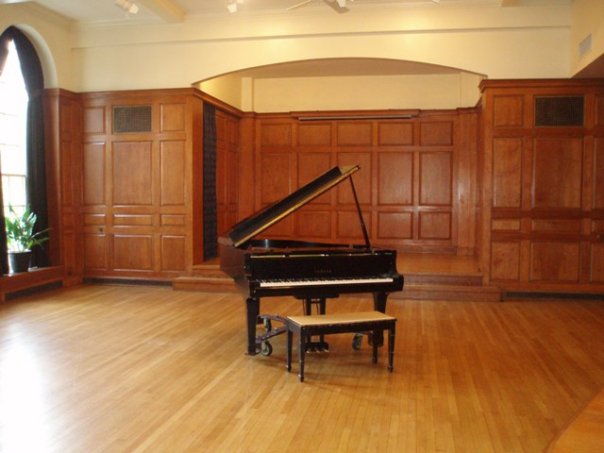 |
Terry Winter Owens is the host of this "Composer's Voice" concert speaking about her musical style and her romance with the stars. |
| Title | Composers | Performers |
| Rhapsody | John Bouz | Ju-Ping Song, piano |
| Sketches for Piano | Marco Oppedisano | Hiromi Abe, piano |
| Chaconne | Noah Creshevsky | Hiromi Abe, piano |
| Dr. Blood's Mermaid Lullaby | Beth Anderson | Christine Perea, flute and Pei-Chun Chen, piano |
| NY Minute | James Romig | Pei-Chun Chen, piano |
| Run Rabbit Run | Robert Voisey | Christine Perea, flute and Ju-Ping Song, piano |
| Rendezvous with Hyakutake | Terry Winter Owens | Pei-Chun Chen, piano |
| The Rapture of Beta Lyrae | Terry Winter Owens | Ju-Ping Song, piano |
| Red Shift and Spectral Glow | Terry Winter Owens | Hiromi Abe, piano |
| Performers | |
| Patricia Pei-Chun Chen, pianist, was born in Taiwan and began her piano studies at the age of eight. She has been a prolific performer since that time, studying with such esteemed musicians as Lee-Hui Chen, pianist, and contemporary music virtuoso Esther Lamneck. In 1994, her hard work paid off, winning her a first place prize amongst her fellow piano students at the Theological College in Taiwan. In 1998, Patricia graduated from the Monash University in Melbourne, Australia with a Bachelor’s Degree in Music Performance where she studied piano with the highly regarded pianist, Nancy Chou. In addition to her studies while in Melbourne, she also taught piano at the Box Hill Music Studios. After receiving her degree, Ms. Chen then spent two years performing extensively in Melbourne at recitals, music festivals, and numerous fundraising and social events. Among her performances during this time, was a recital with harpist Olivia Lu at the National Recital Hall in Taipei. Ms. Chen completed her Master’s degree at New York University in 2002 where she studied Piano Performance. A diligent supporter of chamber music, Patricia plans to coordinate future concerts of chamber music in the New York area in addition to pursuing her career as a pianist and music educator. | |
| Christine Perea began playing the flute at the age of 10 in Detroit, Michigan studying with Clem Barone and Shaul Ben-Meir of the Detroit Symphony Orchestra. She earned a B.M. in Flute Performance from DePaul University in Chicago where she studied flute with Mary Stolper and Mary Brown and Baroque music with Roger Goodman. While in Chicago, Ms. Perea also served as principal flutist and piccolo player for two years with the Chicago Classical Symphony Orchestra under Maestro Joseph Glymph. In 1998, she moved to New York City to study contemporary music and music technology at New York University. Here, she studied flute with Linda Chesis, Keith Underwood, and Robert Dick and pursued contemporary chamber studies, free improvisation, and electro-acoustic music studies with Dr. Esther Lamneck. In June of 2000, she earned her M.M. in Flute Performance at NYU, but has remained matriculated to pursue a PhD in Performing Arts, Music Composition and Performance. Her research goals include writing a dissertation pertaining to the history of electro-acoustic music for the flute with emphasis on the use of timbre in this repertoire and a pedagogical guide to playing the alto and bass flutes, of which she is an avid performer. In addition to being a student at NYU, Christine is also a member of the adjunct faculty. Her future performance schedule will include collaborations with the Vox Novus contemporary composers organization under the direction of Robert Voisey. An active supporter of new music, she has performed New York premiers of works by Rodrigo Sigal, Lawrence Moss, Rene Mogensen, Jin Hi Kim, and Will Redmond. | |
| Soprano Patricia Sonego made her operatic debut in New York City as "the young, pretty and inexperienced telephone operator" in the world premiere of American composer Jack Beeson's Sorry, wrong number. As a member of the "strong supporting cast", she received an enthusiastic review from Robert Prag of Opera News. She has performed on CBC television, been heard on radio, and seen in numerous recitals. She was heard most recently in recital at Toronto's Cathedral Church of St. James, where reviewer Trisha Hickey of The National Post stated "voice of an angel --- a beguiling voice hailed for its true sensitivity and drama". Ms. Sonego's debut CD is entitled Patricia Sonego A Simple Pleasure and includes the premiere recording of American opera and song composer Seymour Barab's song cycle The Rivals. Ms. Sonego will be performing Kafka Fragmente by György Kurtág in an intermedia production entitled Kafka In Love with Autumn Leaf Performance in Toronto. | |
| Ju-Ping Song is an avid proponent of contemporary music, and has been recognized as such by critics from The Eagle and The Boston Globe. Her deep interest in this field has led her to pursue collaborations with other like-minded artists at new music centers such as the Darmstadt Workshop in Germany, the Tanglewood Music Center, the Solo Recital Series of New Music in Florence, multi-media projects with Klub Katarakt in Hamburg, the Manhattan School Contemporary Music division, the NYU New Music Ensemble and Composers' Forum, and the Lincoln Center Film Music evenings at Walter Reade Theatre. Among her achievements are premieres of works by Magnus Lindberg, Heinz Holliger, Per Nørgård, James Mobberley, Andrea Cavallari, Jan Feddersen, and numerous works by up and coming composers. A regular guest to the Annual Florence Youth Orchestra Festival, she has had occasion to perform Mozart and Beethoven concertos with l'Orchestre de Chambre de Lausanne, the Bromley Chamber Orchestra and the Winterthur Symphony. Performances have taken her to Paris, Hamburg, Oldenburg, Florence, Camerino, Amsterdam, London. This summer she will travel to Italy and Romania, where she will perform Mozart concerto K.467 and the premiere of Andrea Cavallari's Piano Concerto with the Symphony Orchestra under the direction of Michael Beck, and to Japan, where she has been invited to participate in the Akiyosidai Contemporary Music Seminar and Festival. When she is not traveling. Ms. Song lives and works in New York City, where she is currently working on her Ph.D. at New York University. Ms. Song has recorded works by Andrea Cavallari and Ron Mazurek on the Capstone label. | |
| Composers | |
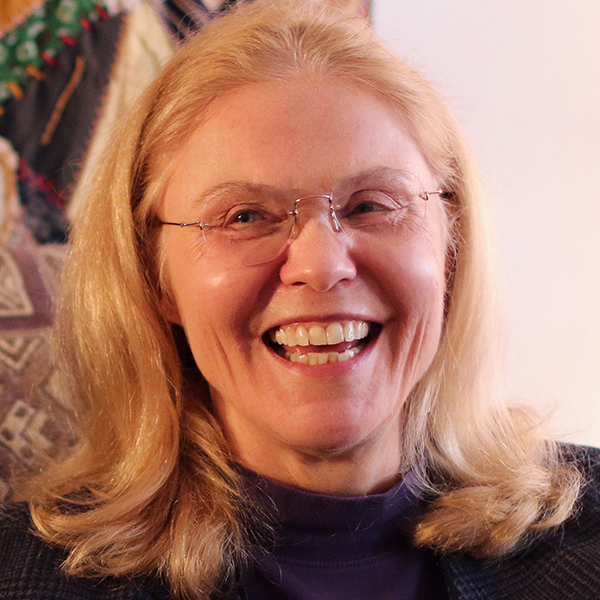 |
Beth Anderson is a composer of new romantic music, text-sound works, and musical theater. Born in Kentucky, she studied primarily in California with John Cage, Terry Riley, Robert Ashley and Larry Austin at Mills College and U.C.Davis. She is a member of Broadcast Musicians Inc. (BMI) and is the current treasurer of New York Women Composers. She lives in Brooklyn and serves on the faculty of Greenwich House Music School. She has been commissioned by the Collegium Musicum Carinthia, Darren J. Campbell and Keith Borden, the Minnesota Sinfonia, the Staten Island Symphony, the Cabrillo Music Festival, the San Francisco Conservatory's New Music Ensemble, Andrew Bolotowsky, Marlow Fisher, the University of the Redlands' New Music Ensemble, Mimi Dye, the Montclair College Dance Festival, Daniel McCusker & Dancers, and the Soho Baroque Opera Company. Ms. Anderson's publishers are Antes/Bella Music and E.M.I/Joshua Corporation/Boston Music Co., distributor. The most complete catalog of her work is probably the New York Women Composers, Inc., catalog available on-line at http://metalab.unc.edu/nywc/. In 1999 her sextet, August Swale was performed at the National Museum of Women in the Arts in Washington D.C. on the annual International Association of Women in Music concert. Her recent concerts in New York were the premier of her choral work , Precious Memories, by The Accidentals produced by Eclectix! at Cami Hall and the premier of her Piano Concerto at Merkin Hall on the Interpretations series. Her orchestral compositions, Minnesota Swale and Revel are available from Opus One, Trio:dream in 'd'(for violin, cello and piano) and Net Work (for piano solo) were released on North/South Consonance, and "September Swale" (for mandolin and guitar) was released on Antes/Bella Musica in December 2000. The Collegium Musicum Carinthia will premiere Beth's new string orchestra piece in Antwerp, Belgium in October 2001. Ms. Anderson is included in many reference works, including The New Grove Dictionary Of American Music, The New Grove Dictionary Of Opera, The Popular Guide To Women In Music, Contemporary Composers, and The Pandora Guide To Women Composers-British & American. An extensive interview with her is included in the archives of the American Composers Oral History Project at Yale University. She is also discussed in Singing At The Top Of Our Lungs: Women, Love And Creativity by Claudia Bepko and Jo-Ann Krestan. |
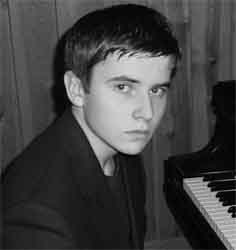 |
John Bouz was born on a farm near the town of Sundre, Alberta. He started his musical education at the age of six with piano lessons with Dianne Irvine in Sundre but started composing before then. Several years later, he also took violin lessons, and then joined the school band playing the trumpet. More recently, he has received lessons on the pipe organ in Calgary with Terrence Fullerton. From a very early age he began composing pieces mainly for the piano. By the age of sixteen, he had won the junior, the senior, and the open categories of creative music at the Alberta Provincial Music Festivals, and has won numerous other awards, including first and second place in the Jean Coulthard competition and the Alberta Music Teachers Association competition for young composers. He has also won the Murray Weiss music award. John has composed over thirty pieces mainly for piano solo, organ, and chamber ensembles, in traditional styles and more recently using serial and chance techniques. Some of his piano teachers have been Jamie Syer, Janet Hammock, and Terrence Dawson. He has also studied theory under Roman Toi and Robert Rosen. Bouz has been the organist at the Sundre Catholic Church for the past five years and has performed on the pipe organ at the Jack Singer Hall in Calgary. In 1996 he played the violin and also the piano at the Alberta Premier’s dinner party. In May 2001, the first public performance of his composition, the "Eclipse" from the "Sun Cycle" was premiered by Charles Foreman at the University of Calgary and was played on CBC radio in August. Twice, he has also been commissioned to write music for performance. John has completed his Associate Degree at the Royal Conservatory of Toronto in piano performance. |
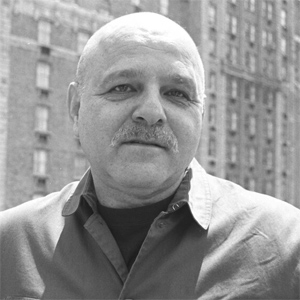 |
Trained in composition by Nadia Boulanger in Paris and Luciano Berio at Juilliard, Noah Creshevsky is the former director of the Center for Computer Music and Professor Emeritus at Brooklyn College of the City University of New York. His musical vocabulary consists largely of familiar bits of words, songs, and instrumental music which are edited but rarely subjected to electronic processing. The result is a music that obscures the boundaries of real and imaginary ensembles though the fusion of opposites: music and noise, comprehensible and incomprehensible vocal sources, human and superhuman vocal and instrumental capacities. Creshevsky's work has been supported by grants and awards from the National Endowment for the Arts, the New York State Council on the Arts, and ASCAP. It has been published by Alexander Broude and the University of Michigan Press, released on records and compact discs, and performed and broadcast internationally. Formerly director of the Center for Computer Music and professor of music at Brooklyn College of the City University of New York, he has served on the faculties of the Juilliard School and Hunter College, and been a visiting professor at Princeton University. |
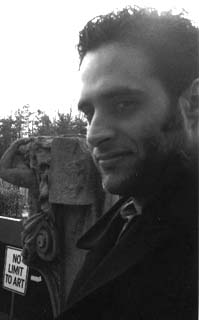 |
Marco Oppedisano was born in Brooklyn, NY. He began playing guitar at the age of 12 and entered undergraduate studies as a classical guitar performance major, studying with Michael Cedric Smith. He holds a B.A in Music Composition from the Brooklyn College Conservatory of Music, an M.A in Music Composition from the Queens College Aaron Copland School of Music and has studied composition with Noah Creshevsky, Charles Dodge, Tania Leon, Thea Musgrave and Henry Weinberg. From 1999-2002, as a guest of the Brooklyn College/ CUNY Electro-Acoustic Composers yearly compact disc, Oppedisano has composed a series of multi-track electric guitar pieces inspired by The Divine Comedy by Dante Alighieri. In 2001, he completed Movements for solo guitar and Frozen Tears for multi-track electric guitar and bass. Projects for 2002 include a solo electric work for Kevin R. Gallagher, a work for multi-track electric guitars, an a cappella piece for 3 sopranos based on the Creation Canto from Dante's Divine Comedy, a classical guitar quartet and an ensemble work for electric guitars and percussion. Oppedisano is also an instructor of guitar and music theory and has ample studio and performance experience in music ranging from rock/pop, hip-hop, blues, jazz, musical theater, electro-acoustic music, free improvisation and contemporary concert music. In May 2002 his multi-track electric guitar work, Frozen Tears was performed in an electro-acoustic music festival at Bilgi University in Istanbul, Turkey and in 1996, received a grant from Meet The Composer. His works are registered with ASCAP |
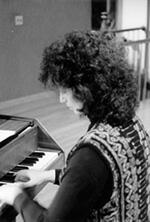 |
Terry Winter Owens is an internationally published composer based in New York City. Her music has been widely performed in Europe and, to a lesser extent, in the US. Her long-time interest in astronomy, astrophysics and poetry is reflected in a recent series of compositions for piano and narrator. A CD of her piano music of the 1990’s, “Exposed on the Cliffs of the Heart”(title from a Rilke poem) in a performance by Portuguese virtuoso Francisco Monteiro was produced by AM&M Records, Portugal and is available from Amazon. Her catalogue also includes works for two pianos, chamber and vocal ensembles, and symphony orchestra. Influenced by the Post-Webernian school , Owens's music has evolved over the years in a modal/atonal direction which she calls the Resonant Continuum. Her compositions are transparent in texture with soaring pointillistic phrases. She also composes in traditional, historical idioms exemplified by her “Homage To Corelli” written in the Baroque style and an album of piano pieces, “Serenades to the Composers” in 19th century harmonic and stylistic idioms. Her score for “The Clearing”, a silent film with continuous music, is scored for two flutes, piano and timpani. “The Clearing” was selected for the 1994 New York Expo and has been screened at international film festivals. http://www.nohofilm.org/store/1995.htm “The Lost Children of Coney Island”, her third collaboration with filmmaker Douglas Morse was premiered at The Kitchen in Sept. 2000 with funding from the American Composers Forum and Meet the Composer. Owens improvised at the piano a la the tradition of the silent film. Owens has performed widely as a pianist and harpsichordist and given many recitals of the music of Gurdjieff/DeHartmann. She directed a Baroque and Elizabethan Chamber Ensemble and performed as a harpsichordist with the Collegium Musicum of the College of Staten Island. She has been a free-lance editor for various publishers and prepared orchestral/vocal computer-notated scores from hand-written manuscripts for the Kurt Weill Foundation. She teaches piano and composition privately and was awarded teaching grants by the New York State Council on the Arts. Owens received a BA in Music from The City College of NY and did graduate work in Musicology at New York University. She studied piano with Lisa Grad and composition with Ralph Shapey. She currently serves as the Independent Composers Representative of the Society of Composers. |
| James Romig (b. 1971) has been performing and composing music since age five. His compositions have been performed throughout the United States and Europe in recitals, music festivals, and as accompaniment to dance. In the tradition of his musical mentors, Charles Wuorinen and Milton Babbitt, Romig's music celebrates dramatic balance, exuberant virtuosity, and rigorous formal integrity. Romig holds a Ph.D. in music theory and composition from Rutgers University, and undergraduate and masters degrees in music from the University of Iowa. A dedicated educator, he gives frequent lectures and masterclasses, including recent talks at Westminster Choir College Conservatory, the Interlochen Arts Academy, and The Juilliard School. Romig has taught at Rutgers University, Bucknell University, the University of Iowa, Pittsburg State University, and is currently on faculty at Western Illinois University. He also serves as music director and principal conductor of The Society for Chromatic Art, a contemporary-music ensemble based in New York City. | |
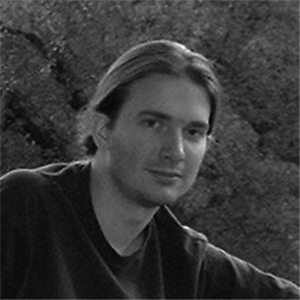 |
Rob Voisey composes music as a natural part of his life. Substantial compositions can take months to complete, or they can appear in one or two days, full blown in both concept and in detail. Voisey has developed an original and versatile system of interlocking, modulating modes that blend elements of eastern and western musical processes. The resulting compositions reflect a wonderful merging of spontaneous energy and disciplined technique. Voisey’s music offers a multitude of pleasures to performers and audiences alike. This is music worth hearing again and again. - Noah Creshevsky Voisey values himself as a renaissance man. His disciplines include music, computer science, math, art, and poetry. In the midst of accomplishing his Bachelor of Arts at the State University of New York at Stony Brook, he traveled to Israel to study with the composers Oded Zehavi and Aiten Schteinberg. Voisey returned to New York two years later to resume his studies with Noah Creshevsky and George Brunner at the City University of New York at Brooklyn College. After a long hiatus, he returned to his background of computer science creating music with electronic media rather than limiting himself to conventional instruments. In Israel, Voisey debuted several compositions at Tel Hai, Bar-Ilan, and Jerusalem. He also enjoyed performances broadcasted on Kol Muscia (the voice of music) Israeli National Radio. Currently composing in Harlem, New York he has several compositions debut in venues in New York City as well as abroad. Recently his compositions have debuted in Buenos Aires, Argentina with La Scala de San Telmo. Relentlessly developing the Vox Novus in its goal to promote contemporary composers, he is also involved in several other projects promoting contemporary music. One of these endeavors is the Dante Project involving several artists combining their talents to express their interpretation of Dante's Divine Comedy. Besides several chamber and electronic works, he is working on Poppetjie, an opera describing the path of girl, fighting society and family oppression as she reaches womanhood. |
Program Notes: |
|
Rendezvous with Hyakutake (1996)……………..…Terry Winter Owens
In April 1996, the comet Hyakutake and the solar system converged in time and space—an interaction not to be repeated for forty thousand years. I was there too. On a cold early spring evening, as Hyakutake streaked across the heavens at an astronomical pace, the Earth, by contrast, lazily wheeled through space. At a far more humble speed, I drove to a dark beach on the south shore of Staten Island, somewhat beyond the obliterating glow of New York City lights. I left my car at the side of the road and made my way by foot to an open field. Venus was already low on the horizon, as though not to detract from the glory of the comet. Hyakutake was unmistakable, even before I put my eye to the telescope. I felt that I myself was not only witness to this extraordinary convergence, but a participant in a cosmic rendezvous. The reflected light of Hyakutake, at first an impression on my retina, aroused all manner of unexpected feeling. And suddenly, like lovers, for a moment it was as though Hyakutake and I became one entity. Music sprang to life in my inner ear. Such was the conception of this piece. Later, I wondered if celestial bodies had their own consciousness and whether my presence was known to Hyakutake. --Terry Winter Owens The Rapture of Beta Lyrae (1998)………………..Terry Winter Owens The astronomer William Herschel coined the term binary star in 1802 and described it as “the union on two stars that are formed together in one system, by the laws of attraction.” Joined in a mysterious cosmic dance, Beta Lyrae is one of the strangest of the eclipsing binary star systems. The primary star, classified as a giant, has perhaps twice the mass of our Sun. The secondary star is largely invisible even though it is far, far more massive, with perhaps 12 times the mass of our Sun. A thick, opaque torus of matter orbiting around it and spiraling into it, largely conceals it from direct observation. The two stars engage in a continuous exchange of matter, the smaller relinquishing its mass to the larger through a spiral train. One feels the harmonic interactions of related tones and overtones can be experienced in oneself as a rapturous microcosmic representation of the phenomenon of binary stars and, at the same time, as the ecstasy of lovers. Red Shift (2001) ………………………………….Terry Winter Owens Narrator: Throughout the universe, the galaxies are distancing themselves from one another, rushing apart at phenomenal speeds, signaling their departure by a shift in the red end of their light spectra. Edwin Hubble measured the red shiftt in 1929 and thus rendered impossible the idea of a static universe. Rainer Maria Rilke, having died in 1926 of leukemia in a sanatorium near Monireax, did not know about the red shift or about Hubble’s discovery. Yet in his Eighth Elegy, Rilke personalized a phenomenon of universal significance, intuiting something of extraordinary magnitude. He concludes his Elegy with the following lines: Who has twisted us around this way so that no matter what we do, we are in the posture of someone going away? Like someone upon the farthest hill who is shown his whole valley, one more time, he turns, stops, lingers --, so we live and forever take our leave. Wet hat uns also umgedreht, dass wir, was wir auch tim, injener Haltung sind von einem, welcher fortgeht? Wie er auf dem letzten HUgel, der ibm ganz sein Tal noch einmal zeigt, sich wendet, anh~lt, weilt --, so leben wir und nehmen immer Abschied. *How the red shift is measured: The sound of a train whistle as it approaches us not only becomes louder but higher and higher in pitch. Conversely, as it moves away from us, it becomes lower in pitch. This is the Doppler Effect and it applies to light-emitting sources as well as sound. As light-emitting sources, such as celestial bodies, move away from the observer there is a lengthening of the wavelengths at the red end of the spectrum. The amount of lengthening, or red shift, is proportional to the distance from the observation paint. From these measurements was born the paradigm of the expanding universe and the Big Bang. |
|
Vox Novus exists to promote the composers, musicians, and producers of contemporary music. To accomplish this, Vox Novus sponsors concerts and a core group of musicians who perform New Music. The Vox Novus community also allies itself with other organizations to hold many concerts in different regions throughout the world. Through these alliances, we promote concerts in an exchange of talent, ideas, and resources. The music community has a long tradition of being pan-geographic, and this idea has only reinforced the concert process. Eager audiences are recruited from different areas of the world and thus further the exposure of contemporary music. The Internet is the new frontier for the contemporary composer. The ability to connect a single individual to billions around the world is among the greatest inventions to come to the human race. Vox Novus is connecting our members with interested individuals throughout the world via the Internet. Through its website, Vox Novus provides resources to the contemporary composer, public access to the new music of its members and an effective means to distribute their work. Our website, which attracts hundreds of visitors each day, is offered in both English and Spanish, and will soon offer French and Portuguese to include all of the official languages of the Americas. While this has been accomplished on a limited budget, our vision for the future is almost without limit. We are creating a community in which contemporary music in accessible scores is easy to find, listen to, read, and procure. This community also provides composers with the opportunity to promote music easily while allowing them to choose to make entire works free for the public to listen to and read, make excerpts available with the complete score restricted for purchase or request, or to keep their scores completely restricted, with only the description and instrumentation available with inroads as to how the composition can be acquired. Our goal to distribute music is not only for the benefit of the composers, but also to support musicians and audiences. In the 21st century, musicians and composers use the technologies of contemporary society. Reliance on royal patronage, or academia is no longer viable for the contemporary artist. As society and technology change, we too must change. All over the world, composer collectives are bringing vitality and creative opportunities to contemporary composers and the audiences they wish to reach. These exciting new works of art must be performed and heard for the cycle of creativity to be completed. A society thrives when musicians are free to express themselves through their work. Just as Robert Schumann, in his time, championed Chopin and Brahms, we to are championing the work of our composer members. |
| Brought to you by | |||
 |
 |
||
| Funding by | |||
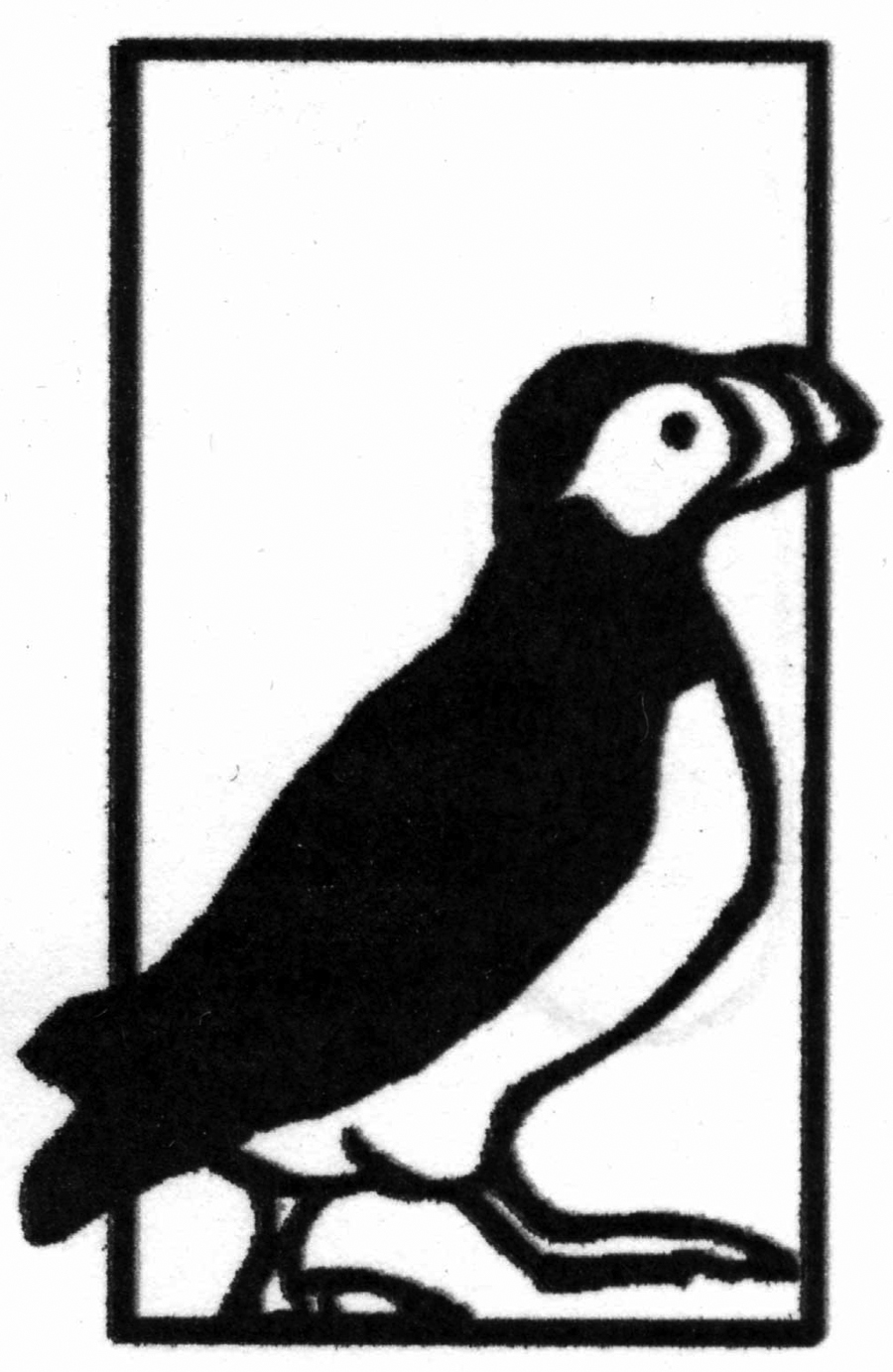 |
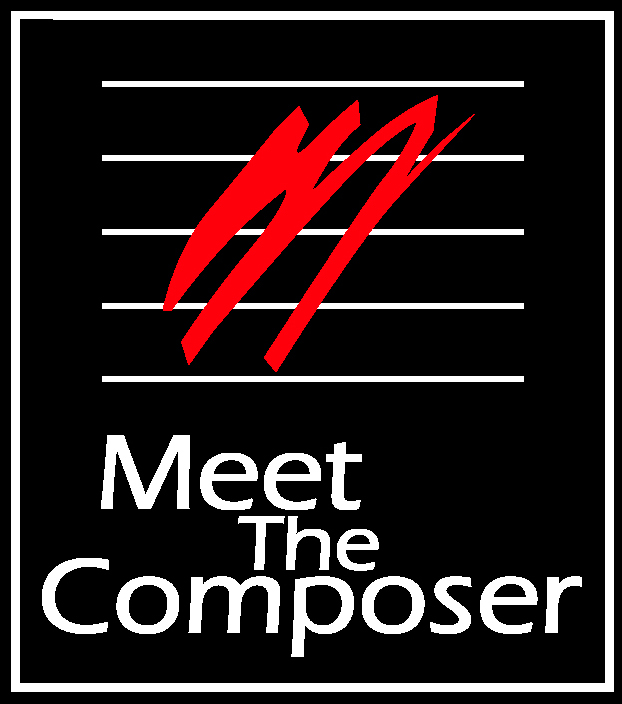 |
||
| Funding also provided by the Puffin Foundation, "...continuing the dialogue between art and lives of ordinary people." | |||
| Funding from Meet The Composer, Inc. is provided with the support of NY State Council on the Arts, NYC Department of Cultural Affairs, ASCAP, Virgil Thomson Foundation, Jerome Foundation, JP Morgan Chase, Mary Flagler Cary Charitable Trust, The Eleanor Naylor Dana Charitable Trust, The Greenwall Foundation, and National Endowment for the Arts. | |||
| Home | ||||||||||||
| Calendar | ||||||||||||
| History | ||||||||||||
| Opportunities | ||||||||||||
| Vox Novus | ||||||||||||
| Site Map | ||||||||||||
| Contact | ||||||||||||
| Hosted by Malted/Media and Kalvos & Damian's New Music Bazaar | ||||||||||||
![[ Vox Novus - the new voice for contemporary music ]](http://www.voxnovus.com/img/Vox_Novus_Logo_black.png) | ||||||||||||
![[ Composer's Voice ]](http://www.voxnovus.com/img/Composers_Voice_Collaboration_Logo.png) | ||||||||||||